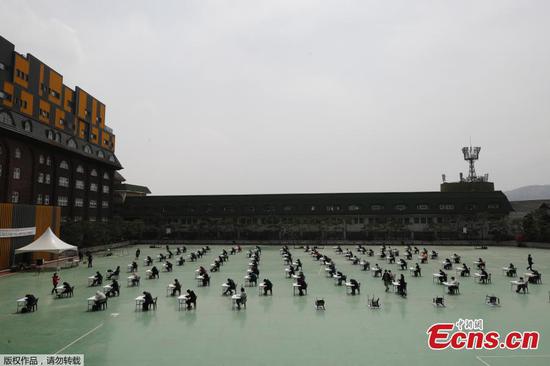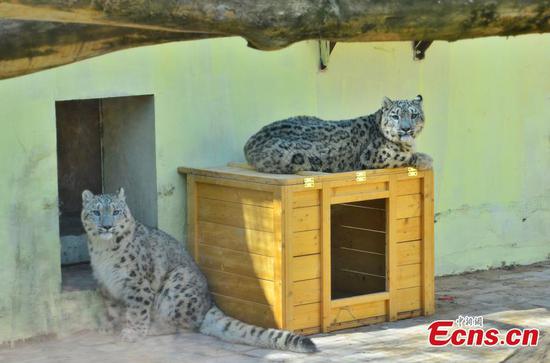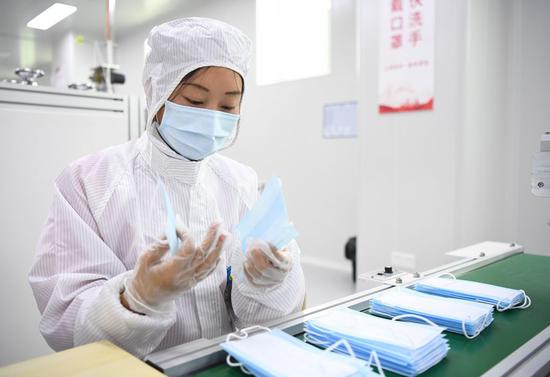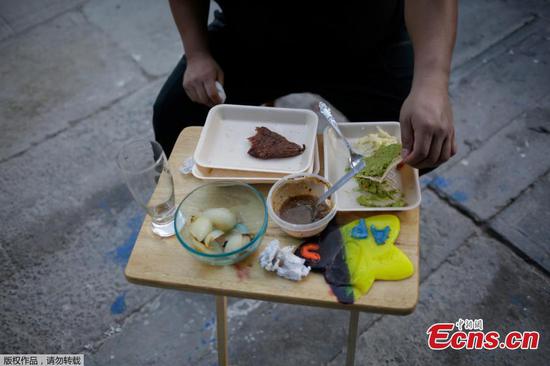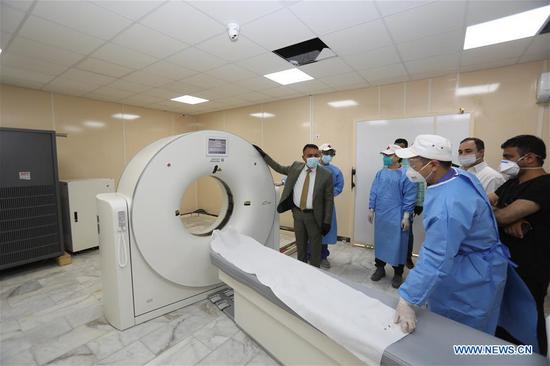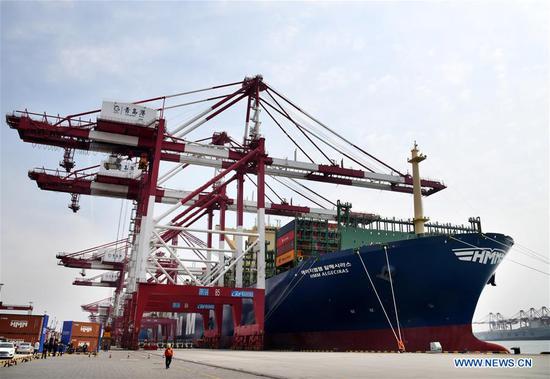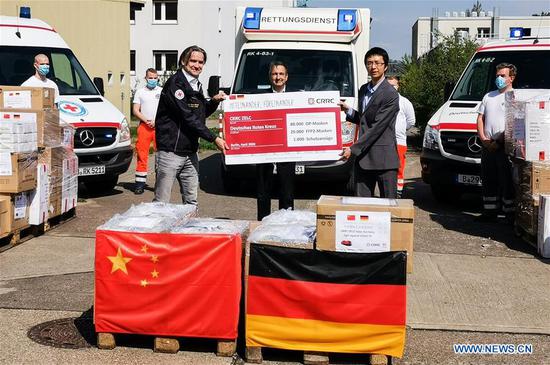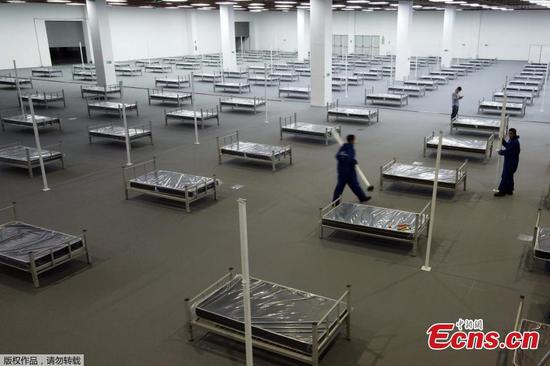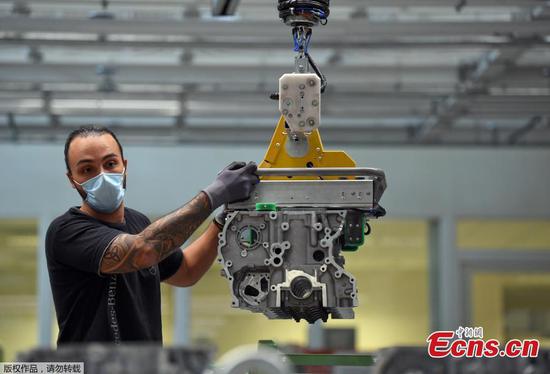
A customer tries KFC's plant-based chicken nuggets at a KFC store in Shanghai. (Photo provided to China Daily)
Chicken cravers in China will soon get a creative alternative with hopefully minimal loss of the original taste: faux meat.
Fast food chain KFC China entered the alternative protein fray this week with the launch of sampling trials for its first plant-based chicken nugget in select cities.
Between Tuesday and Thursday, participating KFC outlets in Shanghai, Shenzhen and Guangzhou will offer the new product at a special price of 1.99 yuan (28 cents) for five pieces. The company said the compulsory presale coupons for the trial were snapped up within an hour of launch in Shanghai via KFC's indigenous mobile app, indicating a strong enthusiasm.
KFC is inviting customers to share their feedback on the new product in order to optimize flavors and processes and help assess the potential for a larger scale rollout in the future. It did not specify any further details.
The quick service restaurant giant is teaming up with US-based consumer staples giant Cargill Inc for the new product, which comes with high-quality protein such as soy, wheat, and special peas to create a taste akin to that of real chicken.
"KFC's plant-based chicken nuggets cater to the growing market in China for delicious alternative meat options on the go," said Joey Wat, CEO of Yum China, which operates the KFC brand in China. "We believe that testing the plant-based chicken concept with one of our most iconic products will take this increasingly popular meatless trend to a new level."
Be it health, diet, environment or ethical concerns, consumers' appetite for plant-based meat is getting bigger than ever. The market for such products is projected to reach $27.9 billion by 2025 at an annual growth rate of 15 percent from the expected $12.1 billion in 2019, according to research company MarketsandMarkets.
Unlike being a part of the vegan section, most of the plant-based offerings are targeted at meat lovers. Key players, including Beyond Meat and Impossible Foods, are looking to carve a bigger presence in China.
From last week, coffee chain house Starbucks has started serving more options free of meat or animal products across its 4,200 stores in China, such as meatless pastas sourced by Beyond Meat or oat milk matcha lattes, as a growing number of Chinese consumers are seeking menus they perceive to be healthier.
In the food sector, categories with perceived health benefits, such as nutrient supplement-related ones, have led and will continue to champion the growth in China, said Derek Deng, a partner at Bain& Co.
A dietary guideline issued by the State Council pointed out that the Chinese are encouraged to halve animal-based protein input by 2030 to improve health levels and reduce environmental pressure. This leaves huge room for the development of faux meat.
The sizzling trend has been given more weight in light of the novel coronavirus epidemic, as people have become more cautious about food safety and attach greater importance to food-related carbon footprints, said Daisy Li, food and drink associate director at consultancy Mintel in China.
"A mixture of factors, including urbanization, environmental impact, and a pure surge in animal protein consumption have made it practically impossible to feed the population with inexhaustible animal protein," she said. "The outbreak could effectively spark wider consumer interests in safe and sustainable protein sources, such as plant-based meat or lab-incubated meat as reliable alternatives."









